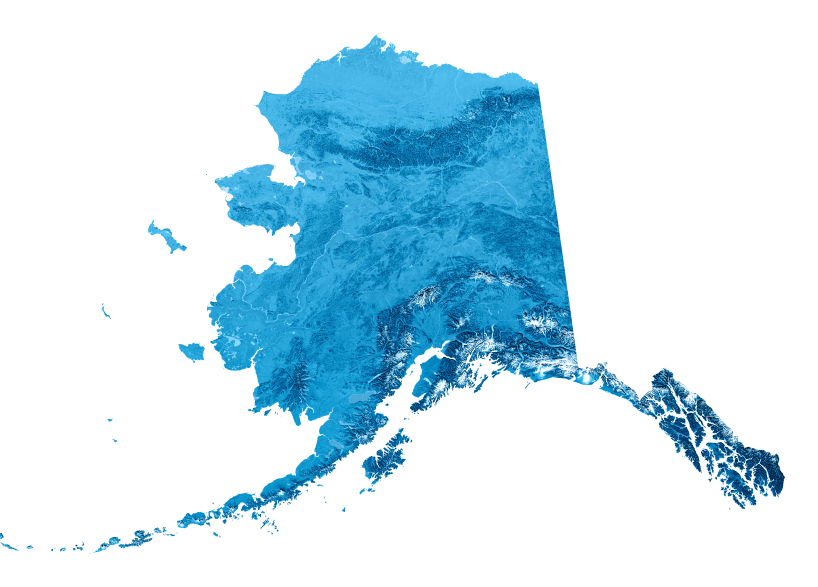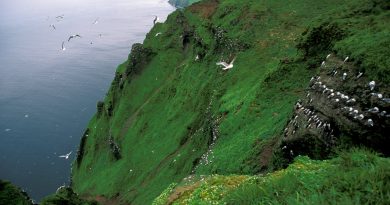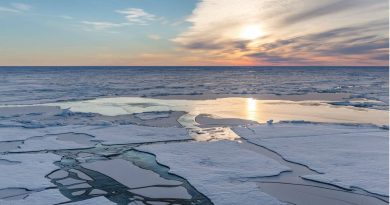Critics call feds’ new ‘mitigation’ a coerced fee

The concept of “mitigation” comes up a lot in stories about development in Alaska.
Typically, it’s compensation a company has to pay for filling wetlands. Their permit may require that they improve another patch of wetlands nearby, or pay an organization to preserve wetlands somewhere else. But federal agencies have begun requiring mitigation for other kinds of environmental damage, and at a U.S. Senate hearing today, critics said it amounts to a coerced payment.
To illustrate this other kind of mitigation, ConocoPhillips is exhibit A. Last year Conoco got permission to develop Greater Moose’s Tooth One, in the National Petroleum Reserve-Alaska. The Bureau of Land Management required the company to pay $8 million in mitigation, beyond what it pays for wetlands damage. The amount isn’t tied to the cost of restoration. The first $1 million will be spent developing a strategy for how to spend the other $7 million.
Sum questioned
Sen. Lisa Murkowski, at a hearing of the Senate Energy Committee, says it was an arbitrary sum, seemingly whatever the BLM thought Conoco would pay.
“So it’s a throwing a dart at the board and seeing where it lands at this point in time. I mean, is it that random?” she asked a witness, Sarah Longan of the Alaska Department of Natural Resources.
“Our sense was that yes, it was that random,” Longan said
She says the state helped the BLM on that project, but even she doesn’t know how the amount was set, just that it was late in the process and all sides were feeling pressure to reach an agreement. She added, though, that the BLM is making an effort now to be more transparent in its methods.
‘Pay to play’
Murkowski says the new practice is enshrined in a presidential memo issued in November. She says it’s a form of “pay to play.”
Other senators used harsher words.
“It seems to me just a way to hold projects hostage,” said Sen. John Barrasso, R-Wyo. “(It’s) effectively saying a permit will be delayed or not even considered at all, unless some sort of advanced payment is made.”
Barrasso put the question to the Interior Department’s representative at the hearing, Michael Bean.
“Is this a way to basically just prevent projects from developing and moving forward?”
“It’s a way to facilitate and expedite projects, sir,” Bean replied.
Bean says the presidential memo is intended to get agencies working together on mitigation. He says the concept of requiring an offset for damage is part of many established environmental laws, dating back to the 1934 Fish and Wildlife Co-ordination Act.
Implications for Alaska?
Sen. Elizabeth Warren, D-Mass., is all in.
“This memo says that if developers are going to damage some of our most precious resources, then they should minimize or make up for the damage they do,” Warren said. “Developers may a squirm and kick about this, but it seems right to me.”
Murkowski says the agencies need a more transparent method of setting mitigation amounts. Otherwise, she says, it’s an effective tool to shut down just about all development in Alaska and the West.
Related stories from around the North:
Canada: Energy challenges in Canada’s North, Eye on the Arctic
Finland: Chinese energy giant plans €1bn biofuel plant in northern Finland, Yle News
Norway: Northernmost oil platform now pumping after years of delay, The Independent Barents Observer
Russia: Arctic offshore oil more than doubled in Russia, The Independent Barents Observer
Sweden: Will Sweden be able to produce enough energy in the future?, Radio Sweden
United States: Obama, Trudeau announce plans to fight Arctic oil and gas pollution; Alaskans criticize lack of input, Alaska Dispatch News



